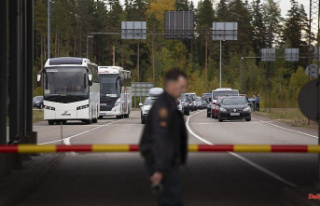Rising costs, especially for energy, also pose problems for the two universities in the north-east. Now they are turning to the state government.
Greifswald (dpa / mv) - The two universities in the north-east are concerned about the rising prices for energy, for example. "Without adequate financial support from the state government, the university faces far-reaching cuts in research and teaching," the University of Greifswald announced on Friday. One shares the concerns of the Greifswald colleagues, according to the University of Rostock.
A joint letter from the State Rectors' Conference of Mecklenburg-Western Pomerania, signed by the rectors of the state's colleges and universities, has already gone to Science Minister Bettina Martin and Finance Minister Heiko Geue (both SPD), according to Rostock. The Senate of the University of Rostock wants to decide next Wednesday how the budgetary emergency should be made clear to those responsible for politics and what demands should be made.
The Senate of the University of Greifswald had already asked for more money from the state on Thursday. To make matters worse, the state is planning to reduce the university's reserves, it said. In contrast to comparable, structurally weak federal states, the state has so far excluded the universities from any support with the exorbitantly increased energy costs.
According to the information, the university expects additional costs of at least eight million euros for 2023. The reasons for this are the exorbitant rise in energy costs, the increase in the minimum wage and inflation.
In dealing with the energy crisis, the University of Greifswald relies on savings measures, education and emergency plans. The room temperature at workplaces has already been lowered to 19 degrees, the heating time on weekdays is usually limited to between 7 a.m. and 4 p.m. and the outdoor lighting has been switched off as far as possible.
An energy crisis team has met regularly since July. Facilities such as laboratories, historical document collections, archives and libraries should therefore draw up emergency plans for any shortages by the end of October. Tips for saving energy have been published on the website. On Friday, a day of action was also to raise awareness of sustainability in the workplace with a lecture, among other things.
The federal government announced a €200 billion aid package on Thursday afternoon, which includes price caps on electricity and gas.












